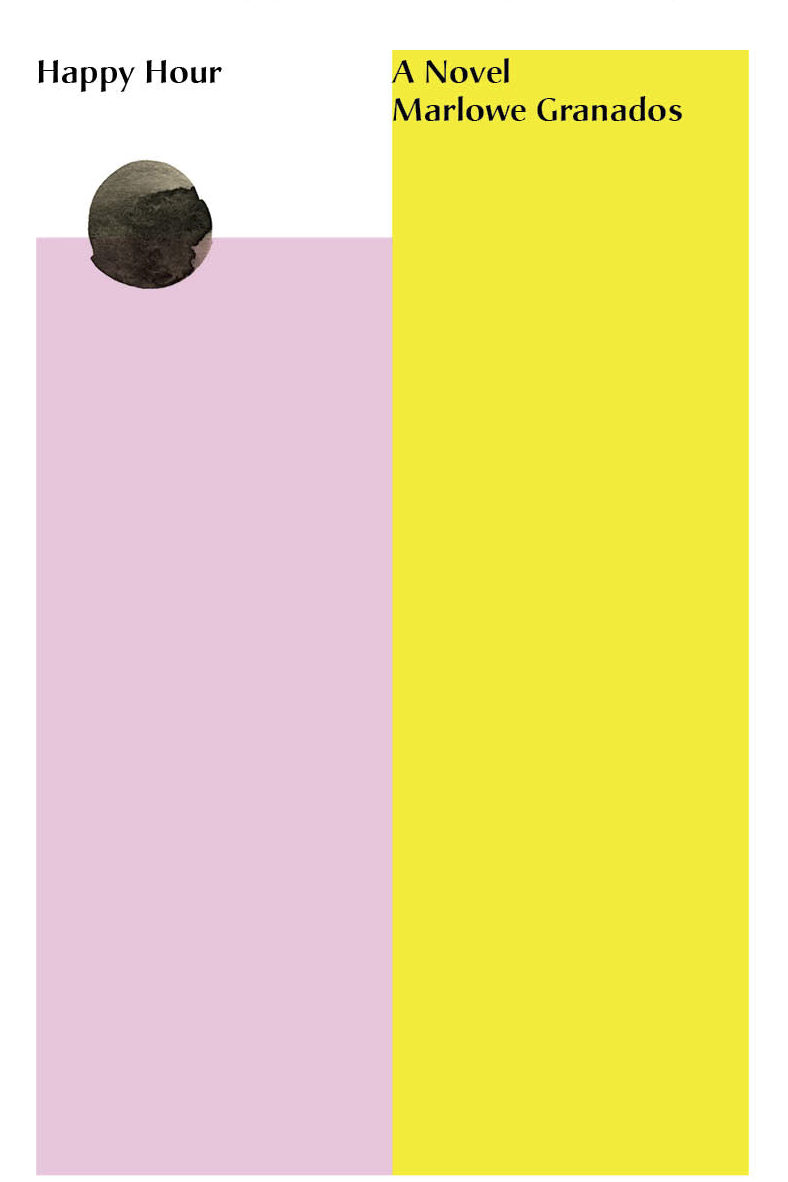Marlowe Granados is fascinated with youthful hijinks. In her debut novel Happy Hour, the central protagonists—two girls in their early twenties—arrive to Brooklyn with an uncompromising raison d’être, to live as fabulously under-the-radar as possible, given their undocumented status. From manning a clothing and accessory booth at weekend flea markets, to bar hopping in hopes of finding a willing male counterpart to foot their tab, Isa and Gala’s ceaseless perseverance affords several cunning narrative turns.
However, beyond an aptitude for wily resourcefulness, Granados digs deep into the psychological impulses informing Isa and Gala’s actions. An honest insight into previous experiences with grief, self-acceptance, and uncertainty nuance the presence of reckless abandon throughout the text, while also expanding on themes of escapism as self-discovery. Their world is borderless; their penchant for instant gratification, seemingly infinite.
S/ recently spoke with Granados about Happy Hour, revealing her spiritual relationship with Isa and Gala, the formative influences inspiring her literary explorations, and the power of audacious hedonism.
The novel, much like the television show Girls, paints a rather dingey and unglamorous portrait of New York City living. How did you conceive of this more authentic excursion through a metropolis that is painted with unbridled potential?
“I think the novel is very glamorous! To me, Isa and Gala come from a storied lineage. They are more like Marilyn Monroe and Jane Russell in Gentlemen Prefer Blondes, or the women in Walt Stillman’s Last Days of Disco. I love very particular types of women in history—flappers, demimondaines, gold diggers. The kind of women that rise ranks using whatever they have as currency.
“New York is a city of extremes—What’s that saying? How a pretty face is a passport? It’s just the truth. There are girls that have apartments just to sleep in or pass through on their way to a free meal or party. It’s this mentality of always saying “Yes!” or “Why not?” That can get you into trouble, but for Isa and Gala they get away with most things unscathed.”
The characters of Isa and Gala are imbued with personality traits that root them in a version of tangible reality, yet they retain certain unique qualities that decentralize them for being a millennial caricature. How did you devise such idiosyncratic, yet relatable protagonists?
“I was reading a lot of Modernism at the time and was interested in crafting a specific form for the novel. The book is shaped by Isa’s way of telling stories and the rhythm of her voice. I’m not interested in saying something about a whole generation. I wanted to show the resilience of femininity. Isa and Gala both have these sad histories, but it’s the way they propel forward and demand lightness and fun that makes them so enjoyable to live through.
“The thing I’ve always found a bit corny in these ‘millennial’ novels is their use of technology. It always seems heavy-handed. There is nothing sexy about an email!”

Happy Hour is available at Flying Books.
In the novel, Isa is always making reference to the fact that she and Gala are maneuvering through New York City as illegal aliens. Do you think this dynamic would have changed had they been doing so in the current political landscape?
“I think the situation has always been bad, people just know more about the inhumanity of ICE and deportations now. I don’t believe in borders. I think people should just live where they want to live.
“It’s very subtle in the text but I wanted to show the limitations of what they can and can’t do by being in New York without visas. They don’t want to go to the hospital when one of them gets hurt, they can only work under the table—It doesn’t seem obvious at first blush because they pass it off with such flair but it’s a very precarious life.”
Building off of that, do you believe the issue of Isa’s race would have provided more contentious situations in the current American social ecology?
“God, I really don’t know. I finished writing the manuscript in late 2016…The publishing industry at the time really wanted trauma writing or writing from the perspective of being part of the diaspora. That felt disingenuous to me and my style. You can find hope, fun, and possibility while being from a marginalized background—that’s subversive! I didn’t want to punish my characters for being women and for wanting pleasure…The real world does that enough.”
Are there any autobiographical elements that inform any of the (mis)adventures Isa and Gala experience throughout the novel?
“Of course, there’s a part in the novel where they call Isa’s diary a testament to their youth. That’s what this book feels like to me. I’ve known and loved women like this.”
Was the writing process for your debut novel really exciting? Were there any unforeseen challenges that sprung up along the way?
“I was constantly taking notes in my head. People would say things and I would immediately be like ‘Gala would say something like that, or Isa would phrase that in the same way.’ It held a lot of space in my mind for three or so years. The challenges came from the publishing aspect…I’m pretty impatient and I just wanted the book to come out so badly! I think now is the right time, though. I feel like the older sister to these characters now, and I’m far enough away from the writing process that I can look at the novel with clear eyes.”
Are there any literary works that inspired you when conceiving Happy Hour?
“I was reading a lot of Anita Loos, Jean Rhys, Edith Wharton, Dorothy Parker. There’s an amazing quote from Loos’s Gentlemen Prefer Blondes that goes, ‘He really does not mind what a girl has been through, as long as she does not enjoy herself at the finish. But Henry said that when girls… do not pay, and pay, how are all the moral people going to get their satisfaction out of watching them suffer.’ I loved the idea of having women characters that got away with everything and more, people hate that!”
The title of this novel can be interpreted as a misnomer. For every hedonistic bender, more pressing ramifications or anxieties ensue, is this deliberate?
“I think the title of Happy Hour is perfect for a brief look into someone’s life over the course of a summer. You get more for less, you drink champagne and oysters when at other times you can’t afford it. You get to have things that weren’t exactly meant or made for you. It’s brief, fleeting, but you had fun, didn’t you?”
